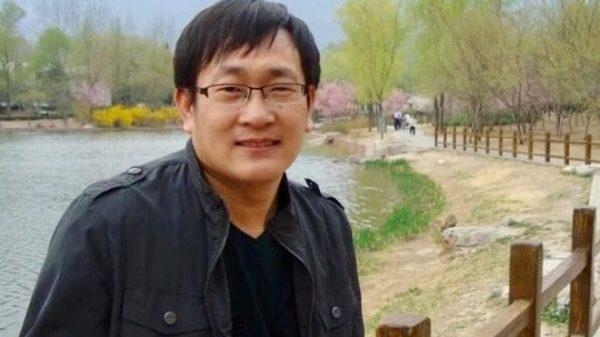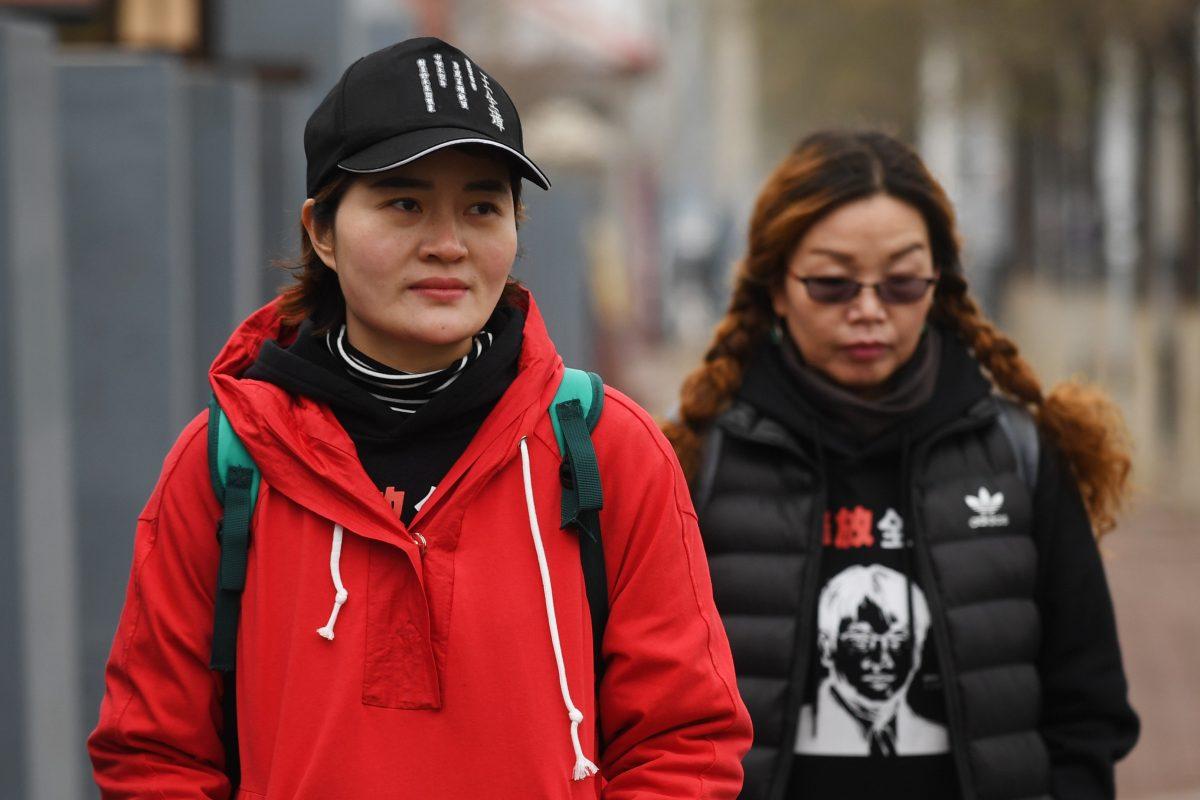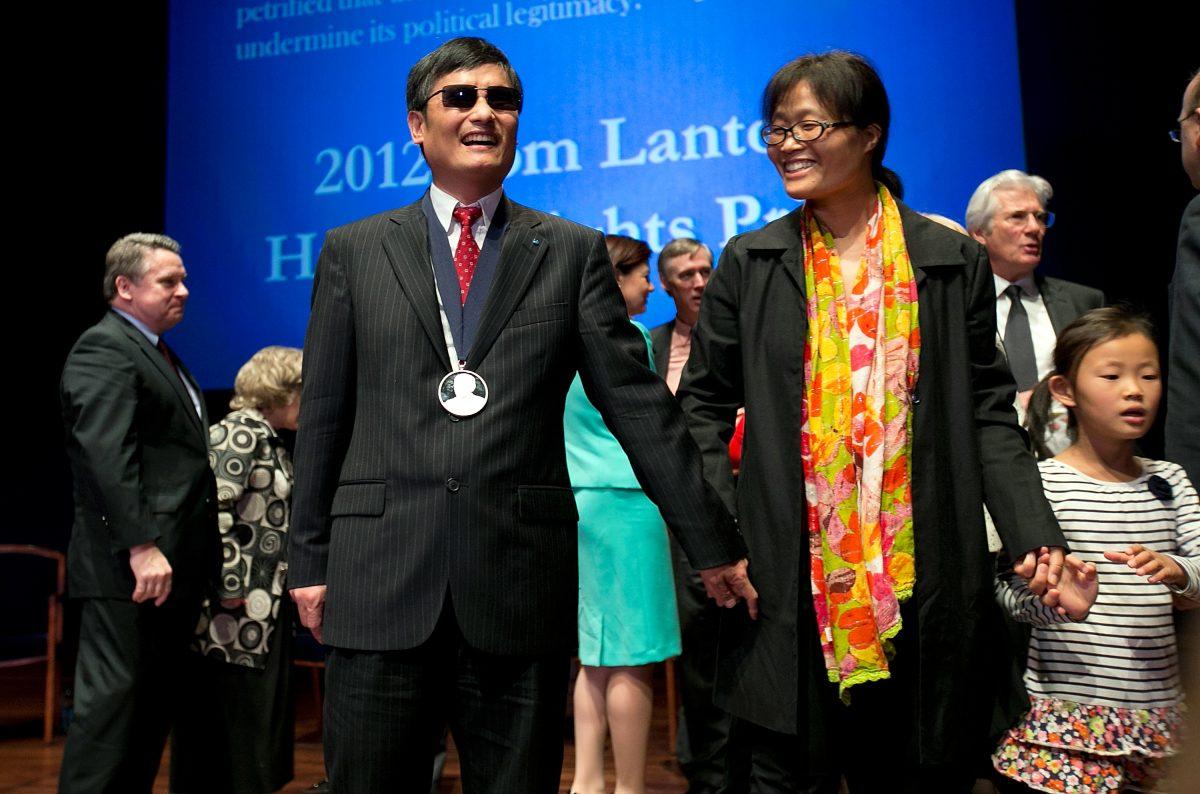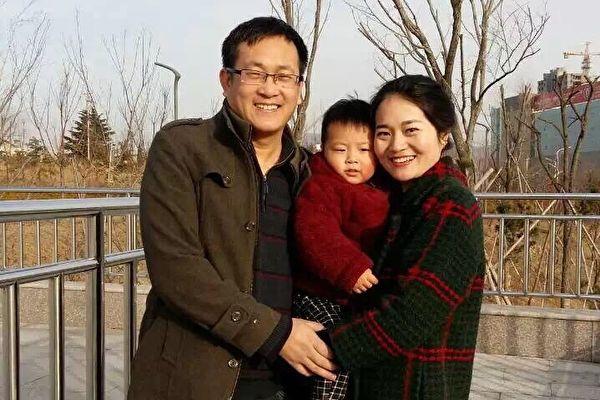It was a long-awaited meeting.
Since four years ago, when Wang was arrested and detained by Chinese authorities amid a nationwide crackdown of human rights lawyers and activists in July 2015, Li had been waiting to see her husband’s face. The day before Li’s first-ever scheduled prison visit on June 28, she wrote on Twitter that “the waiting time was so dragged-out.”
After traveling nearly 420 miles from Beijing to the Linyi Prison in Shandong Province, Li found the half-hour meeting nothing like what she expected.
The prison deployed hundreds of police outside.
As Li walked into the reception room with her 6-year-old son, Quanquan, she had to pause for a moment before she could recognize the man. Sitting across the glass window was a thinner, older, and wearier-looking version of her husband.

Changed Person
Li said that both Wang’s personality and appearance had changed so much that she wouldn’t have recognized him had they met on the street.“I smiled and waved to him in excitement, but he glanced at me without any expression, and tilted his head to the side without looking at me,” Li wrote on Twitter after their meeting.
In an interview on June 28, Li recounted to The Epoch Times how their meeting went. She said he appeared happy upon seeing their son, but a sense of worry soon clouded his face.
“He wasn’t in a good state, I could tell that he was under extreme stress and fear. We couldn’t even have a conversation,” Li said.
Li said that Wang was anxious about her safety. “He expressed concerns that I would be arrested, that our child would be forced out of school.”
“He asked me not to visit him in the next few months,” Li said.
Li noted that he appeared easily agitated and had difficulty remembering recent events.
When Quanquan asked his father whether he had been eating well, Wang said slowly in a robotic voice that he had everything he needed, including extra food. When Li asked what the “extras” were, he began to scratch his head with a troubled look and repeated the question to himself.
“I’m fine, the prison has been treating me very well, it’s not like what you guys think,” Wang said in a high tone, claiming that he had put on weight while in prison, Li recalled in her tweet.
“Tears streamed down as I looked at the thinned face of Quanzhang ... His two front teeth that used to be neatly aligned now shows a huge space in between,” she wrote, adding that Wang seemed like a totally different person. “He looked at me ... as if looking at a stranger and not the wife he hasn’t seen for four years.”
Li also said she had never heard him speak in an aggressive tone before he was jailed. “He wasn’t like that before, Quanzhang was a mild person,” Li said. “He never lost his temper in front of me.”
When the guards ended the meeting, Wang walked away without looking back at them.
She observed that five or six guards were monitoring them as they spoke, with another taking notes beside Wang throughout the visit. Another guard was also filming them on a camcorder, according to Li.

Controlling One’s Mind
After Wang was taken away by police amid the nationwide crackdown, known as the 709 Incident, he was detained for roughly three years. On Jan. 28, in a closed-door trial, Wang was sentenced to four and a half years in prison on charges of subversion—a euphemism for activism that draws the Chinese regime’s ire. In seeking Wang’s release and her visitation rights, Li has met with government officials from different countries, including German Chancellor Angela Merkel and UK Ambassador to China Barbara Woodward.Chen Guangcheng, a Chinese human rights lawyer and civil rights activist, told The Epoch Times that the goal of the Chinese Communist Party was to control their thoughts. He suggested that Chinese authorities likely arranged the meeting between Wang and Li so that the sense of desperation and fear would spread from Wang to his family—and stop them from being vocal about his case.

Chen fled China to the United States in 2012 with the help of U.S. officials. He had been under house arrest before he planned a daring escape to the U.S. Embassy in Beijing.
Speaking from his personal experience, Chen said when suppressing dissidents, the Chinese regime often plays with their fears while they are detained in a secluded environment, seeking to inflict mental pressure.
“If you don’t cave in, they would use all kinds of ways to ‘educate’ you with fear and threats,” Chen said.
“They instill this kind of fear in you, and you don’t know any other information nor the true situation. This will prey on your mind.”
Chen said that their ultimate goal was to wear them out until “you no longer care about the injustices in society and just live your life,” Chen said. “They want the shackles to be secured in Li Wenzu and Wang Quanzhang’s minds for the rest of their lives.”





